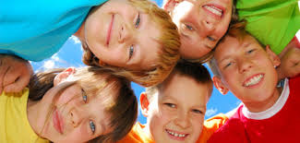Children depend on daily routines. They wake up, eat breakfast, go to school, play with friends. When emergencies or disasters interrupt this routine, many children may become anxious.
In a disaster, they’ll look to you and other adults for help. How you react to an emergency gives them clues on how to act. If you react with alarm, your child may become more scared. They see your fear as proof that the danger is real. If you seem overcome with a sense of loss, your child may feel their losses more strongly.
Children’s fears may also arise from their imagination, and you should take these feelings seriously. A child who feels afraid is afraid. Your words and actions can provide reassurance. When talking with your child, be sure to present a realistic picture that is both honest and manageable.
Feelings of fear are healthy and natural for both adults and children. But as an adult, you need to keep control of the situation. When you’re sure that danger has passed, concentrate on your child’s emotional needs by asking the child what’s uppermost in his or her mind. Having children participate in the family’s recovery activities will help them feel that their life will soon return to “normal.” Your response during this time may have a lasting impact.

